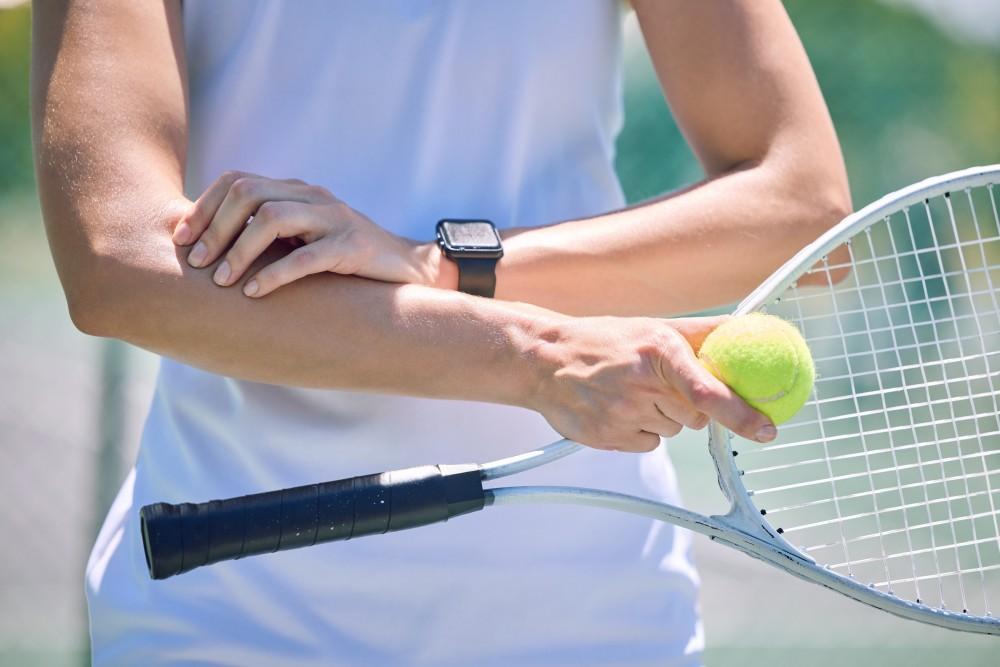Get Back in the Game: 3 Steps to Take After a Sports Injury
Are you sitting on the sidelines, singled out by a sports injury? Athletes everywhere understand the frustration. But with the right help, you can minimize the impact of your injury and get back in the game as quickly as possible.
At Tadje Orthopaedics in Meridian, Idaho, Jared P. Tadje, MD, offers comprehensive sports medicine services to treat and prevent musculoskeletal injuries related to sports and exercise. Dr. Tadje and our team are committed to providing expert care for athletes of all levels.
Did you just get hurt? While it may seem like a major setback, we’re here to help. Take these three steps after a sports injury, so you can get back to doing what you love.
1. Stop What You’re Doing and Rest
We know how tough it can be to sit out the rest of a game, or take long weeks or months off from training after an injury. But the best thing you can do is to give your body a chance to heal.
Keep the injured limb or joint still and avoid putting weight or stress on it for the first few days, depending on the specific details of your injury. Resting and immobilizing the area helps prevent further damage and gives your body the time it needs to repair itself.
For most common sports injuries, like sprains, strains, and muscle inflammation, you may experience discomfort, bruising, and swelling. The initial sharp pain typically subsides gradually, leaving behind a throbbing ache.
Note: Seek emergency help if your injury is accompanied by severe pain, an inability to bear any weight, numbness, or tingling.
2. Ice, Compression, and Elevation
Conservative therapies like ice, compression, and elevation help alleviate pain and set you on the path to a successful recovery. Here’s how you can implement these strategies to effectively manage your sports injury:
-
Ice First, Then Heat: Applying ice to the injured joint or limb reduces swelling and pain. Use a cold compress or wrap ice in a towel and hold it to the affected area for 15-20 minutes, every three to four hours. To avoid worsening inflammation, avoid using heat for at least 72 hours post-injury. Then you can use a heating pad or compress to relax the muscles and relieve tension.
-
Don’t Wrap Too Tightly: Using a compression bandage or elastic wrap can control swelling and provide support to the injury. Make sure the bandage you use isn’t too tight, as this can be uncomfortable and restrict blood flow.
-
Elevate the Injury: Raising the injured limb above your heart can reduce swelling by promoting fluid drainage. This is particularly effective for leg or ankle injuries, such as a sprained ankle or torn anterior cruciate ligament (ACL).
3. Professional Care for Optimal Recovery
While these at-home treatments can provide significant relief from most common sports injuries, professional medical care from a trusted source is essential for a complete recovery. Dr. Tadje offers expert guidance, diagnosis, and treatment tailored to your specific needs.
Early intervention can make all the difference in preventing long-term pain and ensuring a speedy recovery. Tadje Orthopaedics offers same day or next day appointments for injured patients.
Depending on the nature, location, and severity of your injury, Dr. Tadje may recommend nonsurgical treatments like platelet-rich plasma (PRP) injections, or surgical procedures such as ACL reconstruction or rotator cuff repair.
Don’t let a sports injury keep you on the bench. Experience a faster recovery and get back in the game with our patient-focused care. Contact Tadje Orthopaedics in Meridian, Idaho to schedule an appointment today at 208-515-2654.

